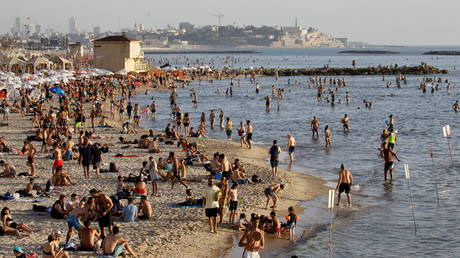
Vaccinated foreign tourists who come “in groups” will be allowed into Israel starting on May 23, according to a joint statement from the Ministry of Health and the Ministry of Tourism.
The “first phase” of the new tourism policy starts on May 23, and depending on the outcome, the authorities will consider whether to let more visitors in.
The statement explains that tourists in groups are “easier to monitor”.
“It is time to facilitate tourism in a careful and calculated way,” Health Minister Yuli Edelstein said in the statement.
Tourists will be required to undergo a PCR test before boarding an Israel-bound plane, and to take PCR and serology tests to prove vaccination or recovery upon arrival at Ben Gurion Airport. The Ministry says Israel is discussing possible introduction of “vaccination certificates” with other countries and plans to issue guidelines for the tourists in the coming days.
Tourism Minister Orit Farkash-Hacohen says Israel has “the advantage of being a safe and healthy country” and the opening of tourism is necessary to help the economy recover.
Last week Israel’s Immigration Authority announced that foreigners who were vaccinated or recovered from Covid-19 would be able to enter Israel to visit first-degree relatives. Previously, foreigners were only permitted to enter Israel under exceptional circumstances, such as to receive essential medical treatment or to attend a funeral of a first-degree relative.
Health Minister Edelstein has called Israel “the first vaccinated state”, referring to the country’s fast immunization campaign, which has already involved more than half of its population of 9 million. Also in place is a system of so-called green passports – digital documents issued to those who have been vaccinated or recovered from coronavirus. The passport is required to enter certain places and to participate in certain activities and mass gatherings. And while the measures have seen the infection rates drop dramatically, critics point to the fact that the restrictions imposed on those who refuse the jab essentially leave people with little choice and create inequality.
Earlier this year Israel saw rallies against the nationwide lockdown and coronavirus-related restrictions turning violent as protesters clashed with police and set cars on fire.
If you like this story, share it with a friend!




